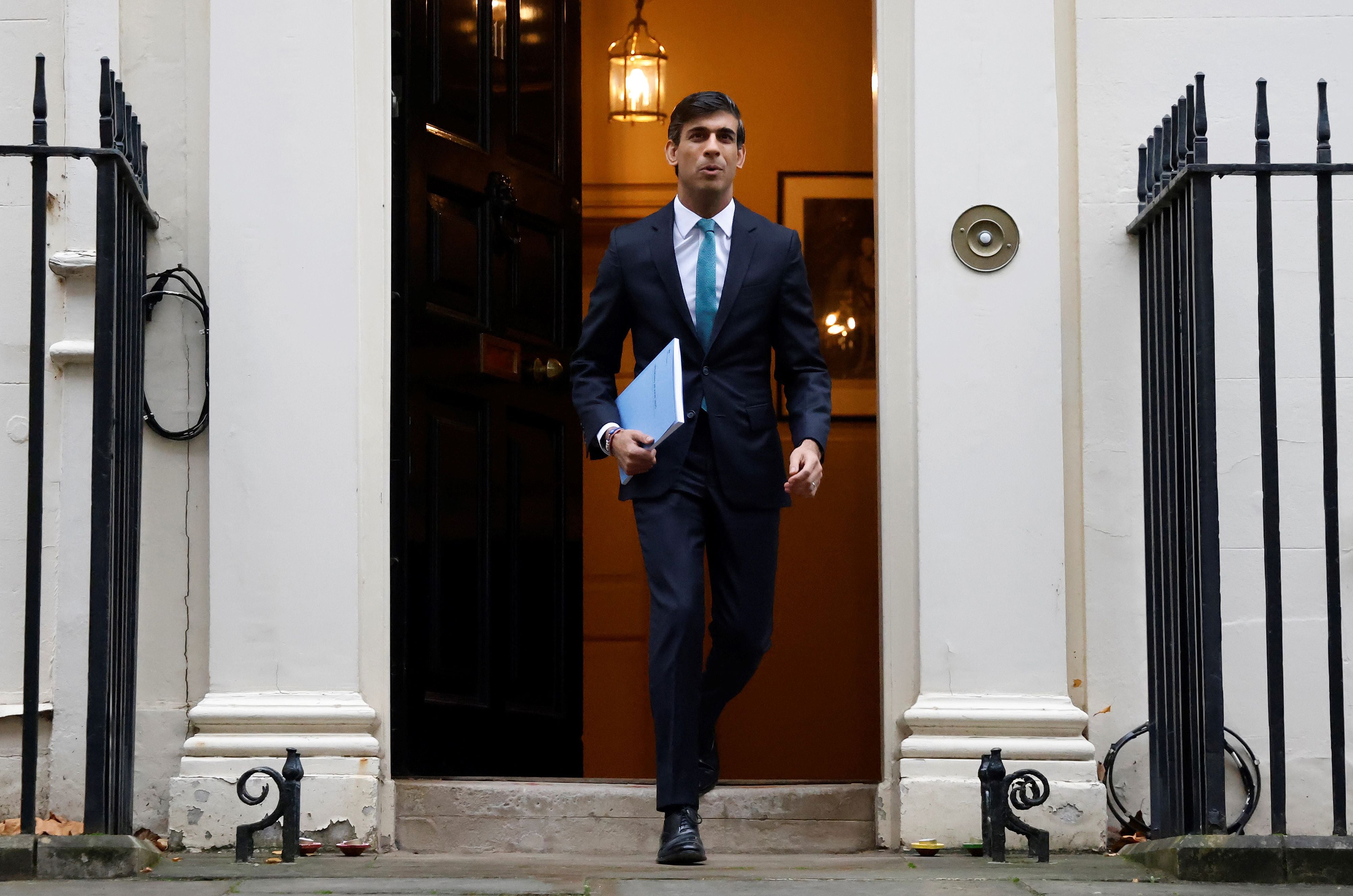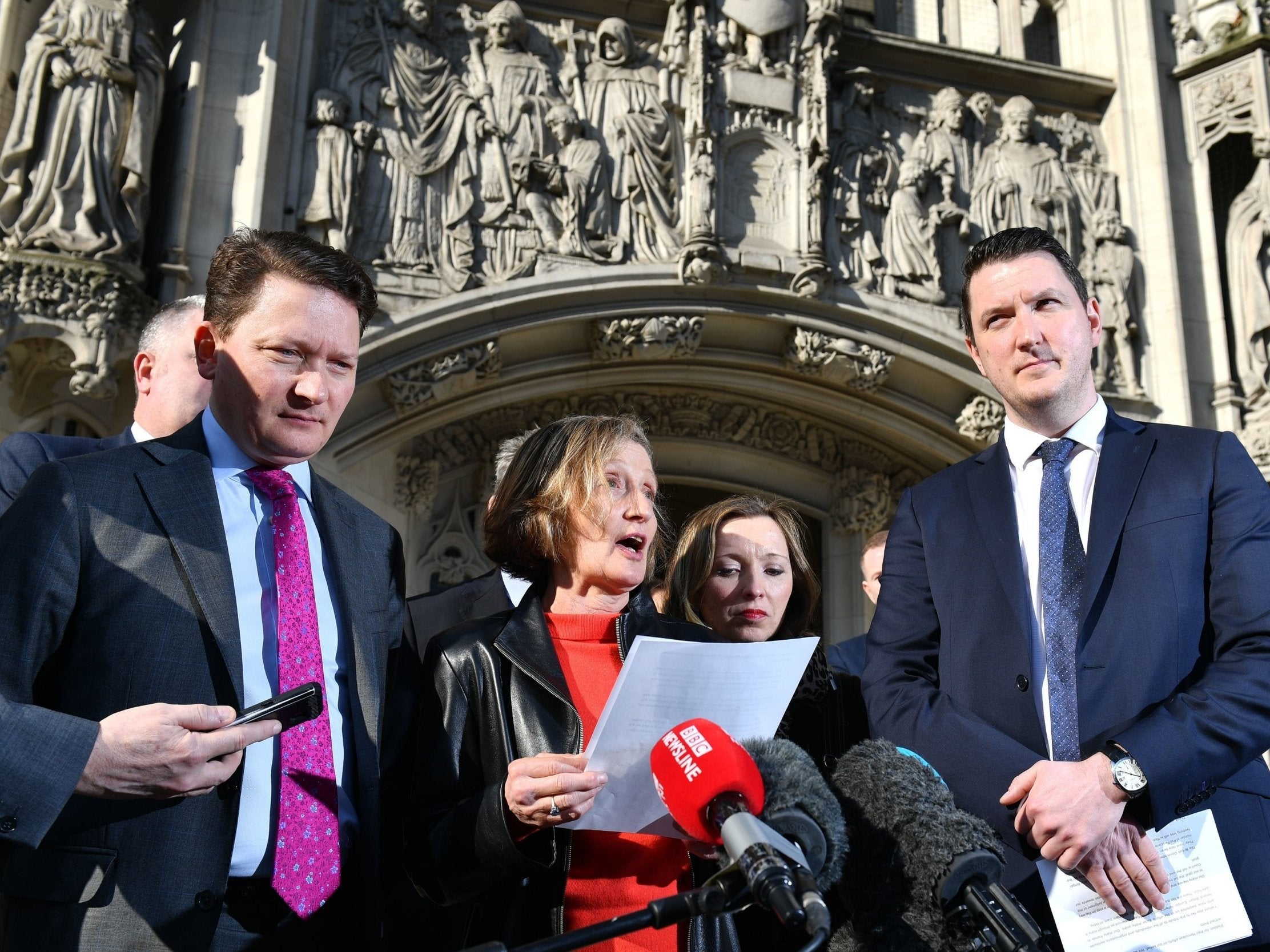Brexit news – live: EU may not turn up to trade talks as foreign aid cut to stay for ‘foreseeable future’
Follow the latest updates from parliament
Your support helps us to tell the story
From reproductive rights to climate change to Big Tech, The Independent is on the ground when the story is developing. Whether it's investigating the financials of Elon Musk's pro-Trump PAC or producing our latest documentary, 'The A Word', which shines a light on the American women fighting for reproductive rights, we know how important it is to parse out the facts from the messaging.
At such a critical moment in US history, we need reporters on the ground. Your donation allows us to keep sending journalists to speak to both sides of the story.
The Independent is trusted by Americans across the entire political spectrum. And unlike many other quality news outlets, we choose not to lock Americans out of our reporting and analysis with paywalls. We believe quality journalism should be available to everyone, paid for by those who can afford it.
Your support makes all the difference.Downing Street has admitted that it does not know if EU negotiator Michel Barnier will turn up for face-to-face Brexit trade talks which are due to resume tomorrow.
The admission came after reports suggested Mr Barnier was pulling out of the talks unless there is a major shift in the UK’s negotiating stance.
It came as Boris Johnson faced a growing backlash from senior Tories over plans to cut foreign aid from 0.7 per cent to 0.5 per cent of gross national income (GNI) - a cut which would account for more than £4bn.
Chancellor Rishi Sunak said in Wednesday's Spending Review that the plans were needed to repair the economy following the coronavirus crisis.
Former foreign secretary Jeremy Hunt and ex-prime minister David Cameron were among those who criticised the proposal, while Archbishop of Canterbury Justin Welby said it was “shameful and wrong” to remove support to some of the world’s poorest people during the pandemic.
And the prime minister risked further antagonising Tory MPs and much of England as the government announced nearly every part of the country would be subject to Tier 2 and Tier 3 coronavirus restrictions upon exiting lockdown.
Average pay packets on track to be £1,200 lower by 2025 due to Covid, experts warn
Average pay packets are predicted to be £1,200 a year lower by 2025 compared to pre-pandemic forecasts, according to a new analysis by an influential think-tank.
The Resolution Foundation warned the legacy of austerity would “continue for many public services” through the course of the current parliament despite politicians proclaiming an end to the era of cuts.
Our political correspondent, Ashley Cowburn, has the full story below:

Average pay packets on track to be £1,200 lower by 2025 due to Covid, experts warn
Pandemic will prolong Britain’s 15-year squeeze on household incomes, says Resolution Foundatio
Raise carers’ allowance by £1,000 a year, Lib Dem leader says
Carer's allowance should be raised by £1,000 a year due to the impact of the coronavirus pandemic, the Liberal Democrat’s leader has said.
Sir Ed Davey said such a move would be a major boost to millions of people who have worked as carers for others during the crisis.
“Unpaid carers face big challenges every single day; challenges that have been made even harder by coronavirus,” Sir Ed wrote in a letter to Boris Johnson.
“Many carers are facing extreme financial hardship. They have been struggling for months, often relying on food banks to feed themselves and the people they care for.
“So, Liberal Democrats are calling on the government to support carers by raising carer's allowance by £1,000 a year, now.”
The Lib Dem proposal would increase the carer's allowance from £67.25 a week to £87.25, which they say would be in line with the £20-a-week uplift in Universal Credit announced at the start of the pandemic.
It comes after the Carers Trust said two-thirds of unpaid carers had shouldered increased responsibilities during the last six months.
The trust’s research found just one in eight unpaid carers said they had been getting enough support from the social care system, with many exhausted, lonely and worried about their finances.
Public supports temporary cut to foreign aid budget, poll finds
The British public generally supports the government’s decision to introduce a temporary cut in foreign aid from 0.7 per cent to 0.5 per cent of gross national income (GNI), a new poll has found.
The research by JL Partners, featured in The Sun, found 57 per cent of respondents supported the move, while just 15 per cent opposed it.
The full results of the poll can be found below:
US politicians urge Johnson to set up public inquiry into murder of human rights lawyer
Boris Johnson’s government has been urged by leading figures in Washington to “end years of delay” and set up a public inquiry into the 1989 murder of human rights lawyer Pat Finucane in Northern Ireland.
A group of 24 members of the US Congress, both Republican and Democrat, have criticised Mr Johnson over the case, in which Mr Finucane was shot at his home by loyalist paramilitaries.
Our reporter, Adam Forrest, has the full story below:

US politicians urge Boris Johnson to set up inquiry into murder of Northern Ireland lawyer
Both Republicans and Democrats accuse UK government of ‘breach of faith’ in Pat Finucane case
Pro-Brexit Tory MPs could vote against Johnson’s deal with EU, report says
The European Research Group of pro-Brexit Tory MPs is considering voting against Boris Johnson’s deal with the EU if it fails to protect UK sovereignty, according to The Telegraph’s chief political correspondent.
Christopher Hope reported on Thursday that the group is apparently waiting to see what agreement, if any, the government can strike with the EU before the end of the year.
“For Brexiteers, the overwhelmingly important issue is UK sovereignty,” a Tory source told Mr Hope.
“If that is not preserved in the final agreement, I have no doubt we will vote against the treaty in whatever vote is called - either under CRAG (if there is one) or for the final domestic implementing legislation.”
CRAG refers to the Constitutional Reform and Governance Act 2010, which can be used to ratify any UK-EU treaty.
‘Time running out’ for post-Brexit deal between UK and Spain over Gibraltar
Time is running out to find a post-Brexit agreement between Spain and the UK over Gibraltar, the Spanish foreign minister has warned.
“Talks between Spain and the United Kingdom over Gibraltar continue, but there too time is running out,” Arancha Gonzalez Laya told the radio station RNE.
“We won't stop until the last second, but we expect in this game the active participation of the United Kingdom.”
Spain has claimed sovereignty over the port at the mouth of the Mediterranean which was ceded to the UK in 1713 after a war.
However, a 2002 referendum found 99 per cent of Gibraltarians rejected any idea of the UK sharing sovereignty with Spain.
Tax rises and spending cuts after pandemic could be ‘twice as high as predicted’
The level of tax rises and spending cuts needed to balance the nation’s books following the coronavirus crisis could be twice as high as official forecasts suggest, experts have warned.
An analysis by the Institute for Fiscal Studies estimated that the chancellor would need to find £40bn or more in savings or additional revenues to meet his promise to deliver current budget balance.
Our political editor, Andrew Woodcock, has the full story below:

Tax rises and spending cuts after pandemic could be twice as high as predicted
The level of tax rises and spending cuts which Rishi Sunak will need to balance the nation’s books after the coronavirus crisis could be twice as high as official forecasts suggest, experts have warned.
Cost of job and business support schemes is ‘breathtaking’, IFS director says
The amount of money spent on funding job and business support schemes and public services this year is “breathtaking”, the director of the Institute for Fiscal Studies has said.
“A lot of today's headlines focus on the scale of this year's loss of economic output and elevated government borrowing. They are record-breaking,” Paul Johnson said.
“We've never seen anything like it. The UK government has increased spending and borrowing this year by more than any other advanced economy, bar Canada.
“The economy is likely to have shrunk by more than a 10th. The amounts being spent on job and business support schemes and on public services are breathtaking.
“A deficit approaching £400bn is astounding. I'm already running out of superlatives.”
He added that it was a “shame” that it took until yesterday to learn the full extent of the government’s spending during the coronavirus crisis.
“We have had far too many announcements without costings attached, either from Treasury or from the OBR (Office for Budget Responsibility),” Mr Johnson said.
“Nearly all of the £80bn of spending in addition to the £200bn acknowledged in the summer economic statement was committed well before yesterday but only now do we have an estimate of the cost. That's not good enough.”
Results of Spending Review will ‘not feel much different’ from austerity for some services
The director of the IFS has said the results of Wednesday’s Spending Review will not feel much different from a return to austerity for some public services.
“The key core Spending Review decision was to reduce public service spending, other than the £55bn allocated for Covid, relative to March plans,” Paul Johnson said.
“It may seem odd to ignore that £55bn, but none of that is planned to continue beyond next year so it is right to focus on the rest.”
He continued: “That core spending will still be 4 per cent higher next year than last. But it will mean a tougher time for some public services than expected, especially after next year.
“This may not quite be a return to austerity, but for some public services it may not feel much different.
“Once you account for the government's various commitments on health, defence and so on, things look extremely tight for everything that remains.
“Remember that, outside of health, real-terms public service spending was cut by 20 per cent (25 per cent per person) over the decade to 2019/20. Some of those areas could well be facing another bout of austerity - if the chancellor does in fact stick to his spending plans.”
‘Some reassurance’ in economic forecast, IFS director says
There is “some reassurance” in the OBR’s forecast for the UK’s economy as the scale of the downturn may not be as great as the 2008 financial crash, the IFS director has said.
“Arguably there is some reassurance here. On the OBR's central scenario there is ‘only’ a 3 per cent long-term hit to the size of the real economy,” Paul Johnson said.
“That will be painful, especially after such a long period of poor income growth, but it is way less than the impact of the financial crisis.
“And on central scenarios, borrowing will be ‘only’ £100bn or so in 2024-25, not a million miles away from either current budget balance or at least stabilising debt as a fraction of national income.”
He added: “Though even then we would need a fiscal tightening of at least 1 per cent of national income to achieve some sort of balance.
“Those central scenarios are not great, but they are not terrifying. We have had much bigger economic shocks and fiscal tightenings before. See the last decade.”

Join our commenting forum
Join thought-provoking conversations, follow other Independent readers and see their replies
Comments